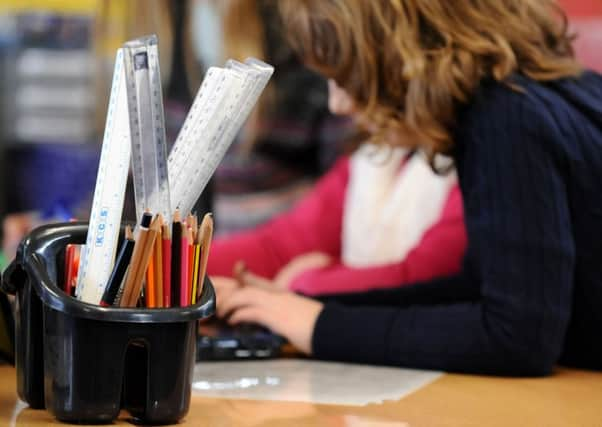‘Worst-hit schools will face struggle over funding for staff’


Malcolm Trobe, deputy general secretary of the Association of School and College Leaders (ASCL) said increased costs imposed by the Treasury would leave schools with no choice but to cut staffing – unless extra funding is provided.
He said for some schools in the lowest funding authorities this would quickly mean major difficulties from 2016/17 when the full year effects of increases of salary, pension and National Insurance are felt.
Advertisement
Hide AdAdvertisement
Hide AdHe also warned that the issue was not high enough up the General Election agenda because none of the leading parties had an answer.
“None of the parties are proposing sufficient funding for schools and something will need to be done before 2016-17.”
From September schools will have to pay increased employer contributions for pensions while National Insurance will go up in April 2016. Although both Labour and Conservative leaders have pledged to protect school funding, analysis by the Institute of Fiscal Studies has suggested both parties are proposing real terms cuts .
The Conservatives have only pledged to maintain per pupil funding at its current “flat cash” level while Labour has proposed increases in line with inflation – but has not pledged to maintain the same per pupil spending which also means a real terms cut.
Advertisement
Hide AdAdvertisement
Hide AdThe ASCL says over the next 18 months schools will face at least a 4.5 per cent increase in costs.
Last week, at its annual conference in Harrogate, the National Union of Teachers agreed to ballot for strike action if the incoming Government does not commit to protect schools funding in its Autumn Statement. The ASCL’s general secretary Brian Lightman warned before its conference last month that schools were facing a crisis.
Mr Trobe said: “This will affect schools differently. But what we are saying is that in some schools in the lowest funded authorities they will find it difficult just putting teachers in front of classes.”
He warned that this would not be a gradual decline and that schools could face problems quickly from 2016: “Schools are not being advised to use all their reserves as all this would do would mean you had a steeper cliff to fall off the following year.
Advertisement
Hide AdAdvertisement
Hide Ad“Some schools might try to use reserves to make the decline less sharp. However for many schools in the lower funded areas the reality is that they will not have any reserves to use.”
Comment: Page 12.